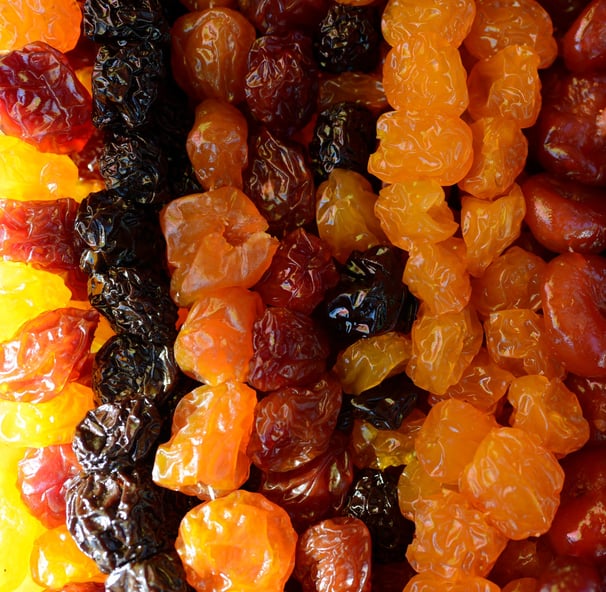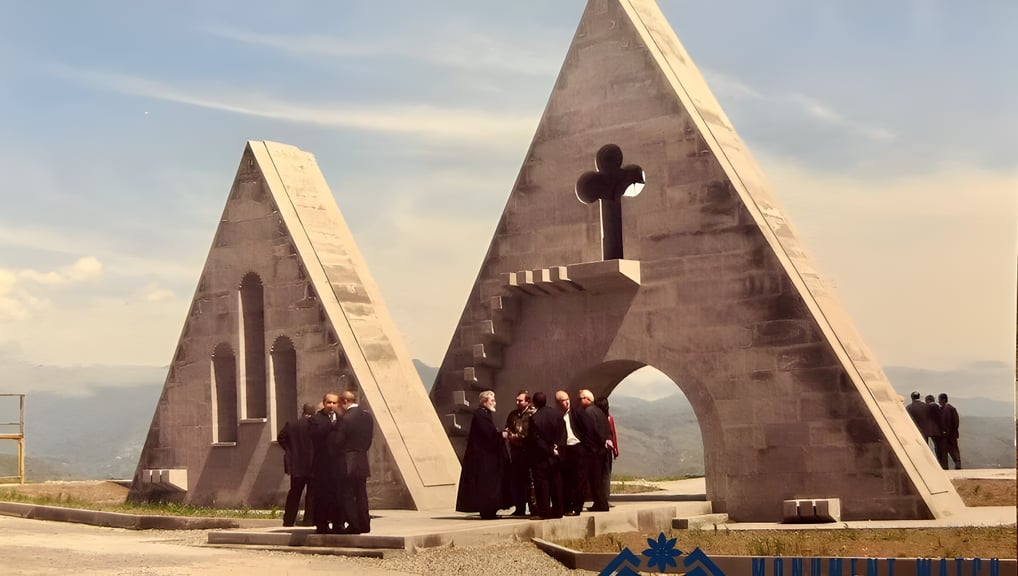
Become ARMENIAN
IT’S TIME TO
DIVE INTO A LIFESTYLE
From its ancient roots as one of the world’s earliest Christian nations to its role as a cultural and spiritual crossroads, Armenia has played a vital role in world history. Established as a kingdom over two millennia ago, Armenia’s golden age saw the flourishing of its unique alphabet, architectural masterpieces, and enduring traditions. Influences from Persian, Roman, Byzantine, and Ottoman empires are woven into its cultural tapestry, all while retaining deeply rooted Armenian identity. From its ancient monasteries nestled in breathtaking landscapes to its vibrant traditions, Armenia offers a timeless journey through its dynamic and enduring legacy.
After regaining independence from the Soviet Union in 1991, Armenia embarked on a path of resilience and transformation. With a renewed focus on education, technology, and cultural preservation, Armenia has become a hub for innovation and creativity. Its thriving diaspora strengthens its global connections, while its traditions in winemaking, music, and culinary arts continue to captivate visitors. Today, Armenia is a beacon of perseverance and pride, celebrated for its unique language, rich heritage, and the warmth of its people.
We’ve curated a selection of hundreds of cultural insights and unique Armenian words to help you connect with the soul of Armenia. These phrases and expressions, often overlooked in traditional courses, will make you feel like a true native.


EXPAND YOUR KNOWLEDGE
If you are interested in learning more about Armenian culture and history as well as the language, we recommend that you download our complete Armenian language course!
You will not only receive all the contents available on our website in convenient pdf or epub formats but also additional contents, including bonus vocabulary, more grammar structures and exclusive cultural insights with additional Armenian vocabulary that you won't find anywhere else.
The additional articles include specific words or expressions related to the culture of the Armenian people. Not only will you be able to speak the Armenian language with confidence but you will amaze your listeners thanks to your knowledge of their country and history.


The Armenian language is deeply intertwined with the country's rich history, traditions, and unique cultural expressions. Many Armenian words carry meanings that extend far beyond a simple translation, encapsulating centuries of heritage, spirituality, and social customs. From religious rituals and folklore to cuisine and historical landmarks, these words reflect the essence of Armenian identity. Through these words, one can gain a deeper appreciation of Armenia’s traditions, values, and the way language preserves the nation’s collective memory:
Թոնիր (Tonir) – A traditional underground clay oven used for baking lavash and other Armenian bread.
Խորոված (Khorovats) – Armenian barbecue, prepared with special marination and often cooked on skewers.
Գաթա (Gata) – A sweet pastry with unique Armenian variations, often prepared for special occasions.
Մատաղ (Matagh) – A religious ritual of offering a sacrificed animal to God, followed by a communal feast.
Թառ (Tar) – A traditional string instrument with deep historical significance in Armenian music.
Շարական (Sharakan) – A form of Armenian liturgical chant sung in churches.
Տոնածառ (Tonatsar) – The Armenian New Year tree, traditionally decorated differently from Christmas trees.
Քյուֆթա (Kyufta) – Armenian-style meatballs, often beaten into a smooth, elastic texture.
Խաշ (Khash) – A winter dish made of boiled cow or sheep’s feet, eaten early in the morning with garlic and vodka.
Խորան (Khoran) – The elevated altar area in an Armenian church.
Զանգակատուն (Zangakatun) – The bell tower of an Armenian church.
Վարդավառ (Vardavar) – A water festival with pagan origins, now linked to Christianity.
Հարսանիք (Harsaniq) – An Armenian wedding, rich with unique customs and multi-day celebrations.
Թաթուլ (Tatoul) – A type of traditional Armenian headscarf worn by women.
Ախպար (Akhpar) – A term historically used for Armenians from the diaspora settling in Armenia.
Հրաշափառ (Hrashapar) – A special church ceremony celebrating major religious feasts.
Ջանգյալով հաց (Jangyalov hats) – A bread stuffed with a mix of wild greens, unique to Artsakh.
Սասունցի (Sasuntsi) – A term referring to people from Sasun, often linked with the heroics of the epic Daredevils of Sasun.
Կոմիտասական (Komitasakan) – A style of music influenced by Komitas, the father of Armenian folk music.
Հոգևոր երգ (Hogevor yerg) – Armenian spiritual or liturgical songs.
Տարազ (Taraz) – Traditional Armenian folk costume, varying by region.
Ապրիլ 24 (April 24) – A shorthand reference to the Armenian Genocide Remembrance Day.
Ծաղկազարդ (Tsaghkazard) – Armenian Palm Sunday, associated with blessing of branches.
Լավաշ (Lavash) – A thin, soft flatbread, an essential part of Armenian cuisine and culture.
Կարիք (Kariq) – The moral duty to help relatives and the community, deeply rooted in Armenian values.
Տոնոյան (Tonoyan) – A term referring to the feast table filled with an abundance of food and drinks.
Համբարձում (Hambardzum) – The Ascension festival with pre-Christian matchmaking customs.
Ագուլիս (Agulis) – A lost Armenian town known for its intellectual and cultural contributions.
Խաշլամա (Khashlama) – A slow-cooked meat dish with vegetables, popular at feasts.
Կարաս (Karas) – Large clay vessels used for fermenting and storing wine.
Խնդեղ (Khndogh) – A type of Armenian wild pear used in food and traditional medicine.
Մշո ճնճղուկ (Msho jnjughuk) – A historical Armenian lullaby.
Գոհար (Gohar) – A term meaning "jewel," also used in cultural expressions about valuable things.
Կարմիր խաչ (Karmir khach) – "Red cross," but also refers to an ancient protective symbol.
Ծիրանի գույն (Tzirani guyn) – "Apricot color," deeply symbolic in Armenian identity.
Հացուպանիր (Hatsupanir) – The humble yet sacred meal of bread and cheese.
Սկիհ (Skih) – The special liturgical plate used in Armenian church rituals.
Վերք Հայաստանի (Verk Hayastani) – A concept referring to the historical wounds of Armenia.
Գարեգինյան (Gareginian) – A term referencing leaders named Garegin, significant in Armenian history.
Տաճիկ (Tachik) – A historical term used to refer to certain foreign invaders.
Ղափամա (Ghaphama) – A festive stuffed pumpkin dish.
Հայր Մեր (Hayr Mer) – The Armenian version of the Lord’s Prayer, central in Armenian Christianity.
Ավանդ (Avand) – A term for traditional inheritance or custom.
Մեղրոտ (Meghrot) – A honey-based Armenian dessert or concept of sweetness in culture.
Կեչառիս (Kecharis) – A medieval monastery with great cultural significance.
Արարատյան դաշտ (Araratyan dasht) – The Ararat Plain, central to Armenian agricultural identity.
Դուդուկ (Duduk) – A traditional Armenian woodwind instrument, producing a deep, melancholic sound.
Մեծ Եղեռն (Mets Yeghern) – "The Great Crime," a term used for the Armenian Genocide.
Ջրաբացում (Jrabatsum) – The Armenian water blessing ceremony.
Խոսրովի անտառ (Khosrovi antar) – An ancient forest in Armenia, tied to historical conservation efforts.
Գառնու տաճար (Garnu tachar) – The Garni Pagan Temple, the last standing Greco-Roman structure in Armenia.
Նոյան տապան (Noyan tapan) – Noah’s Ark, deeply linked to Armenian folklore.
Արցախ (Artsakh) – A historical region central to Armenian identity and struggle.
Նշխար (Nshkhar) – The sacramental bread used in Armenian church rituals.
Բարեկենդան (Barekendan) – Armenian pre-Lenten carnival, celebrated with feasting and games.
Ավագ շաբաթ (Avag shabat) – Holy Week before Easter in Armenian Christianity.
Հոգեհաց (Hogehats) – A memorial meal held after funerals.
Տավուշի գինի (Tavushi gini) – Wine from the Tavush region, known for its unique flavor.
Եռաբլուր (Yerablur) – A military cemetery for Armenian national heroes.
Կարմիր գրիչ (Karmir grich) – "Red ink," symbolizing a teacher’s authoritative corrections.
Շեն (Shen) – A term for a self-sufficient Armenian village.
Քարահունջ (Karahunj) – An ancient megalithic site, often compared to Stonehenge.
Վիշապ (Vishap) – A mythical dragon-like creature in Armenian folklore and petroglyphs.
Աղօթարան (Aghotaran) – A place of prayer, often referring to home prayer spaces.
Կենաց (Kenats) – A celebratory toast in Armenian tradition, meaning "to life" but carrying deep social and symbolic meaning.
Ցեղակրոն (Tseghakron) – A term referring to the ideology of national self-preservation and pride.
100 UNTRANSLATABLE CULTURAL ARMENIAN WORDS


LAVASH BREAD
coming soon


SHADOW THEATER
coming soon


KHACHKARS
coming soon


EXPAND YOUR KNOWLEDGE
If you are interested in learning more about Armenian culture and history as well as the language, we recommend that you download our complete Armenian language course!
You will not only receive all the contents available on our website in convenient pdf or epub formats but also additional contents, including bonus vocabulary, more grammar structures and exclusive cultural insights with additional Armenian vocabulary that you won't in any other textbook.
The additional articles include specific words or expressions related to the culture of the Armenian people. Not only will you be able to speak the Armenian language with confidence but you will amaze your listeners thanks to your knowledge of their country and history.






